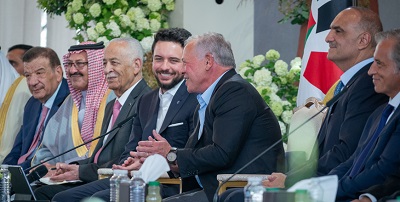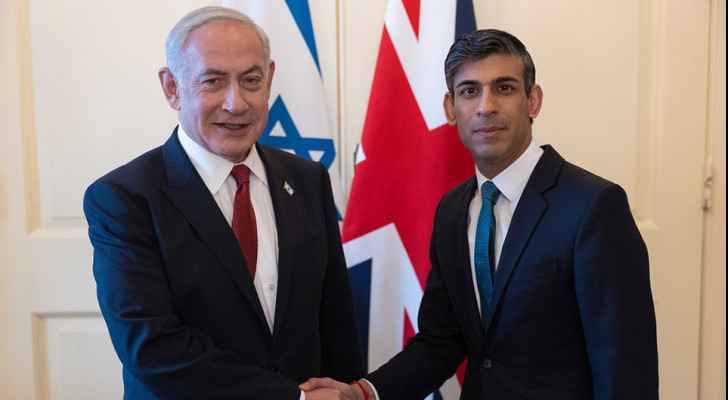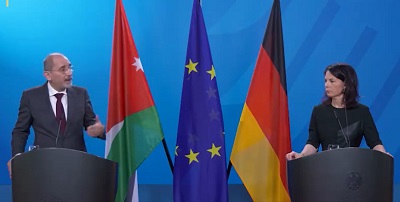Israel and the battles of the screen - By Hussein Shobokshi, Saudi Gazette
In open wars there are smart weapons and unconventional weapons, which are used to achieve victories of another kind. Perhaps one of the most important of these unconventional weapons is TV serials and dramas that are shown on different screens around the world.
Today, Israel seeks to exploit this effectively. Israel is aware that the Hebrew market is very limited. The speakers of this language are not more than nine million people around the world, so they translate their works into languages like English, French, Spanish, German and non-traditional languages such as Hindi, Korean, Chinese and Portuguese.
Also Read: Banksy selling Palestinian history – why it matters
Israel is preparing to release a big film of its production in the name of “the angel.” From an Israeli point of view, it tells of the services provided by Ashraf Marwan “as a spy” to Israel during his long stint. (Former Egyptian President Hosni Mubarak stated at the time of Ashraf Marwan’s death that he was “a national hero and played an important role”).
But Israel wants to market a certain stereotype of itself to the world that it is “smarter” than its enemies and is therefore capable of penetrating them and always beating them.
The message
Israel always tries to carry the same message in most of its dramas for the world that it is a country that seeks to live in peace and it’s neighbors are terrorists who are striving to eliminate it. One of the most important Israeli serials that promoted this idea was the series “Prisoners of War”, and the other series which was a remarkable success, was the series “Homeland”, which presented a terrible example of the Palestinians and Muslims.
Israel sees the economic returns through the promotion, export and marketing of these dramas around the world. As a matter of fact its revenues in 2016 amounted to 270 million dollars, four times what it was in 2006 and it seeks to provide a global interesting material and succeed like the success of Turkish, Brazilian, Mexican, Hindi, Korean and Japanese dramas.
Israeli dramas have become quite identical having almost the same script in which the hero who comes from the Israeli intelligence saves his country from a terrorist preparing to blow himself up among innocent people.
Also read: Who really ‘made the desert bloom’: The demographic war underway in Palestine
A story after the terrorist events around the world has gained an international acceptance. Israel now seeks to develop drama production to include stories far from the Arab-Israeli conflict to show its success as a state focusing on the strength of its economy and the success of its symbols through dramatic dramas in order to establish a deep mental image in the minds of the West that Israel is a successful state among failed states in the region.
The Arab-Israeli war films and series witnessed a stirring movement in the eighties. Films such as “Rise to the Abyss”, “Well of Treason”, “Dead Execution”, “The Road to Eilat” and “Tears in the Eyes of a Slut” provided the Arab memory with positive morale in the confrontation with Israel.
Expansionist plan
Israel has an “expansionist” plan to occupy new spaces in the young mentality around the world based on digital entertainment and away from traditional television and cinema. It plans to collaborate with digital giants such as Netflix and HBO to ensure access to the widest possible audience.
Israel proactively occupies vast areas of global mentality in the virtual entertainment field to devote its mental image to it. It has a firm belief that this is an arena that is no less important than United Nations lounges and battlefields.
Also read: Jordan, Egypt, Palestine reiterate commitment to two-state solution
Israel has managed to control the production in a very economical way until it is known as the cheapest around the world and thus ensures the lucrative returns on its dramatic action economically and it benefited from the culture of savings established by the military structure of the state.
The message that will focus on the Israeli drama in his message, according to Israeli art critic Einav Chif, “is that the world has become insecure.” A person does not need much intelligence to know where the finger is pointing with such a proposition!
Latest News
 King from Mafraq: Jordan’s security, sovereignty above all considerations
King from Mafraq: Jordan’s security, sovereignty above all considerations Sunak tells Netanyahu to “allow calm heads to prevail”
Sunak tells Netanyahu to “allow calm heads to prevail” Safadi, Germany’s Baerbock discuss war on Gaza, regional escalation
Safadi, Germany’s Baerbock discuss war on Gaza, regional escalation FM, EU commissioner discuss development cooperation, regional de-escalation
FM, EU commissioner discuss development cooperation, regional de-escalation Jon Stewart unpacks Iran launching missiles at Israel
Jon Stewart unpacks Iran launching missiles at Israel
Most Read Articles
- Senate president, Iraqi president discuss bilateral ties, regional issues
- King from Mafraq: Jordan’s security, sovereignty above all considerations
- Sunak tells Netanyahu to “allow calm heads to prevail”
- JHCO dispatches 75-truck convoy of food aid to Gaza
- Sudanese rue shattered dreams as war enters second year
- UN agency finds unexploded 1,000-pound bombs in Gaza schools
- Egyptian Foreign Minister condemns potential Palestinian displacement as 'war crime'
- Jordan monitors citizens in UAE amid weather concerns
- Making emerging technologies safe for democracy - By Marietje Schaake and Steven Schuurman, The Jordan Times
- Massive fire engulfs Copenhagen’s historic stock exchange